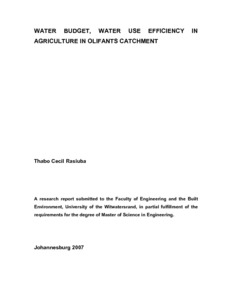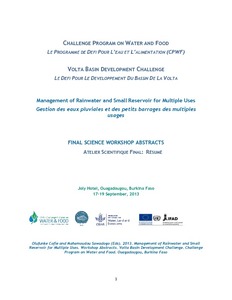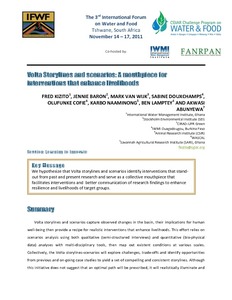Volta Basin Development Challenge. Abstracts of Final Science Workshop.
Water for rural development: Background paper on water for rural development prepared for the World Bank
This paper on Water for Rural Development is divided into two parts. The first part outlines the most important issues from IWMI's point of view on water for rural development, with a focus on developing countries. This part identifies, discusses and provides recommendations for key areas for interventions in water resources development and management in the context of rural development. The second part of the document provides analyses of present and future water resources in the World Bank's defined regions.
Water and nitrogen management for risk mitigation in semi-arid cropping systems
Water investment domains for sustainable agricultural development in the Blue Nile basin
Water for food and energy in the GMS [Greater Mekong Subregion]: issues and challenges to 2020.
Water accounting plus (WA+) - a water accounting procedure for complex river basins based on satellite measurements
Coping with water scarcity and growing competition for water among different sectors requires proper water management strategies and decision processes. A prerequisite is a clear understanding of the basin hydrological processes, manageable and unmanageable water flows, the interaction with land use and opportunities to mitigate the negative effects and increase the benefits of water depletion on society. Currently, water professionals do not have a common framework that links depletion to user groups of water and their benefits.
Water budgeting and management: enhancing aquacultural water productivity
Volta storylines and scenarios: A mouthpiece for interventions that enhance livelihoods
Water and poverty in two Colombian watersheds
Watersheds, especially in the developing world, are increasingly being managed for both environmental conservation and poverty alleviation. How complementary are these objectives? In the context of a watershed, the actual and potential linkages between land and water management and poverty are complex and likely to be very site specific and scale dependent. This study analyses the importance of watershed resources in the livelihoods of the poor in two watersheds in the Colombian Andes.






